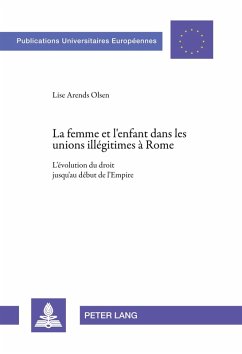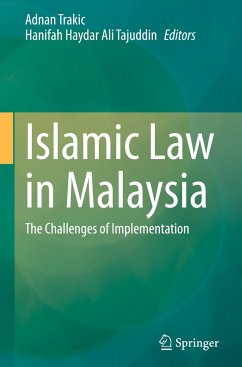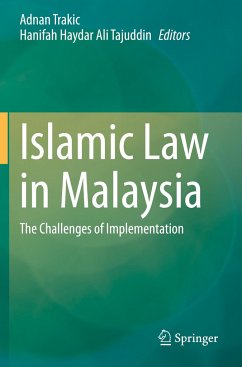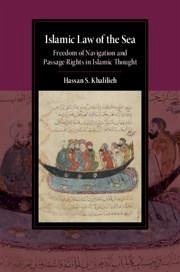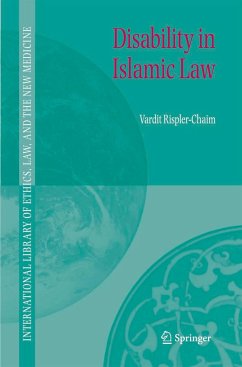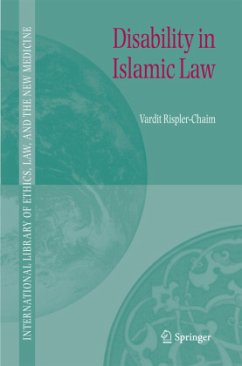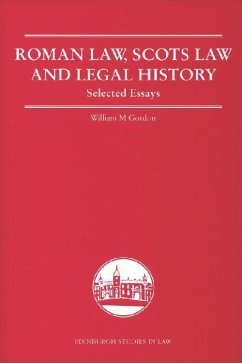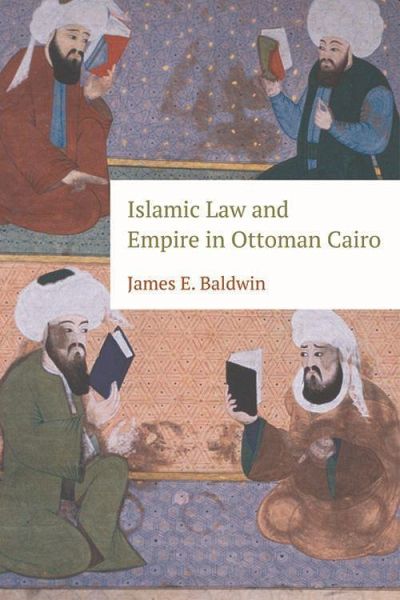
Islamic Law and Empire in Ottoman Cairo

PAYBACK Punkte
70 °P sammeln!
'Drawing on a rich variety of primary sources in both Arabic and Ottoman Turkish, Baldwin provides a valuable reinterpretation of law and politics in Ottoman Egypt and of the relationship between sharīʿa and state power. This is a significant contribution to Islamic legal studies, Ottoman history and scholarship on early-modern Egypt.' Khaled Fahmy, The American University in Cairo. A study of Islamic law and political power in the Ottoman Empire's richest provincial city What did Islamic law mean in the early modern period, a world of great Muslim empires? Often portrayed as the quintessent...
'Drawing on a rich variety of primary sources in both Arabic and Ottoman Turkish, Baldwin provides a valuable reinterpretation of law and politics in Ottoman Egypt and of the relationship between sharīʿa and state power. This is a significant contribution to Islamic legal studies, Ottoman history and scholarship on early-modern Egypt.' Khaled Fahmy, The American University in Cairo. A study of Islamic law and political power in the Ottoman Empire's richest provincial city What did Islamic law mean in the early modern period, a world of great Muslim empires? Often portrayed as the quintessential jurists' law, to a large extent it was developed by scholars outside the purview of the state. However, for the Sultans of the Ottoman Empire, justice was the ultimate duty of the monarch, and Islamic law was a tool of legitimation and governance. James E. Baldwin examines how the interplay of these two conceptions of Islamic law - religious scholarship and royal justice - undergirded legal practice in Cairo, the largest and richest city in the Ottoman provinces. Through detailed studies of the various formal and informal dispute resolution institutions and practices that formed the fabric of law in Ottoman Cairo, his book addresses key questions concerning the relationship between the sharīʿa and political power, the plurality of Islamic legal practice, and the nature of centre-periphery relations in the Ottoman Empire. Key Features - Offers a new interpretation of the relationship between Islamic law and political power - Presents law as the key nexus connecting Egypt with the imperial capital Istanbul during the period of Ottoman decentralisation - Studies judicial institutions such as the governor's Dīwān and the imperial council that have received little attention in previous scholarship - Integrates the study of legal records with an analysis of how legal practice was represented in contemporary chronicles - Provides transcriptions and translations of a range of Ottoman legal documents James E. Baldwin is Lecturer in Empires of the Early Modern Muslim World at Royal Holloway, University of London. Cover image: The four founders of Sunni jurisprudence: Abu Hannifa (Hanafi school of fiqh), Malik Ibn Anas (Maliki Madhab school) and Muhammad ibn Idris al-Schafii (Shafi'i school of fiqh). Turkish minianture, 16th Century, Istanbul, Topkapı Serail Library (c) Roland and Sabrina Michaud / akg-images. Cover design: [EUP logo] edinburghuniversitypress.com ISBN 978-1-4744-0309-2 Barcode





